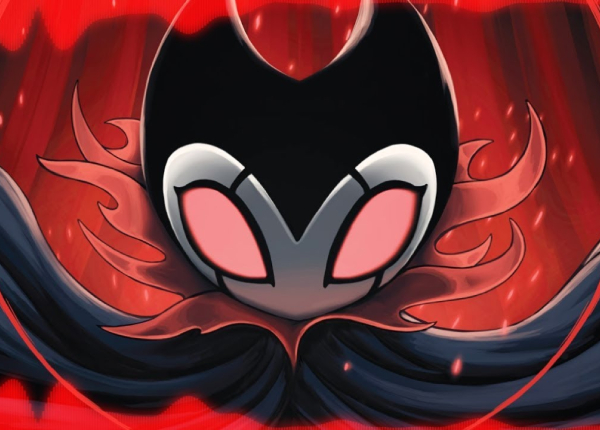The Good Place finale: the philosophical theories behind Janet’s story

The latest season of The Good Place saw the gang nearly fail at their scheme to right the ethical wrongs of the afterlife. Thursday’s finale throws a wrench in the plans, as the latest experiment brings a new quartet of deceased people to the Bad Place — all of whom are familiar to the group from life before death.
[Ed. note: This post contains spoilers for The Good Place through the season 3 finale.]
With Michael in the middle of a meltdown, Chidi wiping his memory in order to preserve the operation once his Australian ex, Simone, re-enters the fray, and Eleanor and company all but taking over the plot, it’s surprising that the finale leaves us contemplating one character in particular: Janet.
A final scene in which Janet’s own recollection of her emotional experience comforts Eleanor shows audiences how far Michael’s faithful number-two has come. An all-knowing entity, Janet has become far more human than not. Embracing her qualities with every new reboot, Janet’s recognition of the self falls in line with another philosopher the writers of The Good Place have likely studied.
Janet — who is not a girl — carries one of the most interesting arcs of the entire series. Combined with D’Arcy Carden’s verve and her unique, vibrat portrayal of a human Siri with bold fashion choices, Janet’s story is meticulous and empathetic, like an exploration of the philosophical readings on Rene Descartes.
:no_upscale()/cdn.vox-cdn.com/uploads/chorus_asset/file/13713288/NUP_183776_0295.jpg)
Colleen Hayes/NBC
Famous for the phrase, “I think, therefore I am,” Descartes explored self-awareness and consciousness in a post-Aristotle age. Descartes’ theories and manners of thinking were not limited to recognizing one aspect of the singular self but identifying the self’s makeup; the relationship between mind and body, known as dualism, gave way to understanding the individual’s essence. For Descartes, our mind is the home of our thoughts, feelings, passions and more that give us identity. The mind is distinct from the material world, but it does have the power to influence. Our mind is something of a Good Place.
Janet was introduced in the first season of The Good Place as a human database — kind of. Able to be summoned by Michael, Eleanor, Chidi, and so on, Janet exists to communicate fact-based information, appear with needed objects, and brainstorm a million possibilities for schemes. In the first season, Janet approximates human behavior rather than embracing those emotions. Though appearing as this all-knowing, human-like being, Janet’s consciousness isn’t developed. In the first season, specifically, her consciousness and self-awareness doesn’t wholly exist.
Only when Janet reboots — killing older versions of Janet — does her self-awareness become realized. Instead of simply accepting Jason’s proposal because, “there is nothing in my [Janet’s] protocol that specifically barred that from happening,” each new reboot allows her to become more conscious. Janet is no longer just aware of her mind and body but finds herself becoming more human, more self-aware. As Janet explains in the first season when Chidi and Eleanor are about to reboot her, “There have been 25 generations of Janet. Each new update of Janet gains more wisdom and social abilities.” Part of those social abilities comes with recognition of the self.
With each new reboot, Janet retains her search-engine qualities, but also develops emotion and contemplates her own positionality i.e. her influence and relationships to the people around her. None of this is more prevalent than in her ebbing and flowing relationship with Jason. After her first reboot, Janet and Jason fall in love, then marry. But things don’t stay quite so good in The Good Place. Once Eleanor figures out that the Good Place is a simulation extension of the Bad Place she and the gang are being tortured in, Michael reboots the whole system, and by extension Janet. Through her many reboots, Janet becomes increasingly self-aware, noting how her feelings for Jason have not changed, and instead impact her own maneuvering of the afterlife.
Janet combusts as she awakens. Malfunctioning much like any forlorn embodiment of a database, Janet seeks out advice from humans, notably Eleanor, telling her to find a rebound. And she does, in the form of her own creation, Derek. But in these simple actions of identifying her emotional status, Janet’s self-awareness goes from becoming an informational database to a conscious entity. Wholly aware of her thoughts and feelings, Janet’s interactions are no longer based on the summoning of a body to distill information, but rather an embodiment of universal knowledge with innate human qualities.
An extension to Descartes’ theory on the self, Janet’s mind begins to influence her actions; the mind influencing matter. It’s a complete turning point for her character and, as the show has progressed, Janet has become a far more self-possessed being. Just within the third season, Janet’s interactions with the cronies from the Bad Place have seen her spilling beer on and completely beating up a group of demons. She’s not the same Janet who would smile and say, “Okay,” to a request. There now is an ethic that comes with Janet and so much of that is due to her journey through self-awareness and consciousness.
Janet’s “void” is given a detailed description offering the dualist philosophy of consciousness that Descartes offered: “…a sub-dimension outside of space and time at the nexus of consciousness and matter tethered to my essence.” The nexus of matter and consciousness is influenced by Janet’s growing essence, and soon she develops a stash of memories of her unrequited love and quiet affection for Jason.
At the end of season 3, Janet recognized her self-awareness and emotional consciousness. Identifying her dualism as both mind and matter, fans watch this not-a-girl engage with emotional repression, agitation, and the effect of her consciousness with the world around her. Forgoing her omniscient position, Janet embraces the confusion of becoming more human and maneuvering the unethical world, or afterlife, where she exists. In season three’s finale, Janet and Eleanor have a heart-to-heart about love and the point of it all. “The more human I become the less things make sense,” says Janet. “But that’s part of the fun, right?”
Part of the fun of The Good Place is seeing imperfect people try desperately to be the best versions of themselves. In Janet’s case, audiences watch a perfect, beautiful, kind robot-lady embrace imperfection and awareness. As per Descartes’ own musings, the philosopher believed the mind is the seat of our consciousness. Because it houses our drives, intellect, and passions, it gives us our identity and our sense of self. With Janet now knowing herself, next season will see her exploring her most innate human qualities while trying to balance her former, database operations without letting slip her newfound humanity.
Because she thinks, knows, and feels, Janet is.
With season three at an end, Janet and company have, once again, found themselves at odds with the forces of the Bad Place and the fate of their afterlife. In Good Place fashion, these philosophical dilemmas extend beyond the literal and fall into the philosophical implications of what it means to be good; what does it take to get into the Good Place. As for Janet, her growing consciousness and level of awareness will only help her friends, who also influence her own journey of self-recognition.
Fans won’t be stuck in the Bad Place for too long, as the philosophical comedy will return in the fall for its fourth season. Until then, as Janet said, “We’ll do this together. In the words of the man that I love, ‘I got you, dog.’”
Julia is an entertainment writer with featured work at The Playlist, Film School Rejects, HelloGiggles, PopSugar, The Young Folks, and Screen Rant.
[ad_2]
Source link





